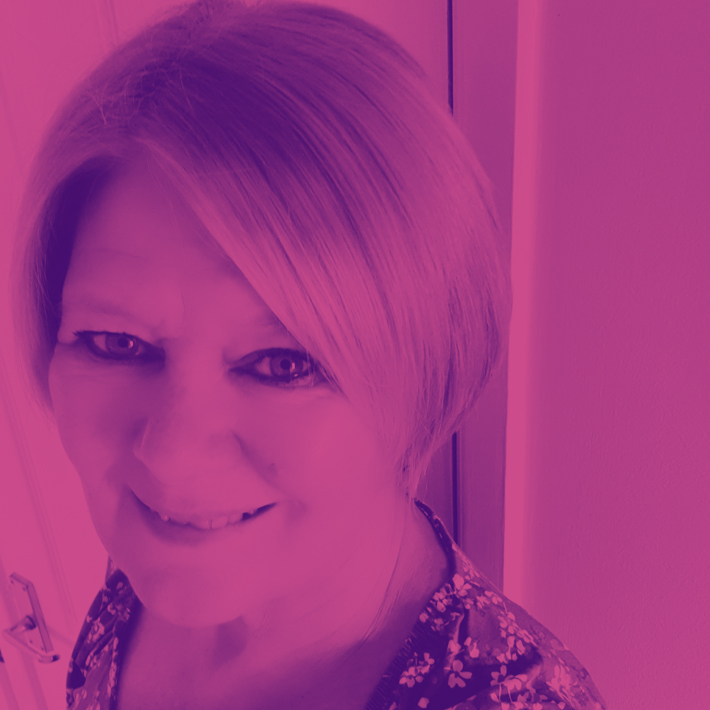
Alison
Urgent Care Assistant
I really enjoy being part of a team that genuinely cares about people.
-
What work did you do before you joined us?
For many years I worked in early years childhood education. Norland trained, I was a Nursery Area Manager before I delivered Apprenticeships qualifications in the Early Years sector as well as the Maths and English functional skills, which were a part of the Apprenticeship programme.
-
Why did you choose to work for us?
With the COVID-19 pandemic, the heavy and remote workload in my last role became quite challenging so I decided to look at taking early semi-retirement. My daughter was already working at Medvivo and suggested looking at the non-clinical support roles here.
Although I was originally employed mostly as a receptionist for the in-hours GP support service with some out of hours work, the role and that part of the business was transferred elsewhere. Although I am still working in-hours at a GP practice, I was keen to stay with Medvivo and so have recently re-joined as an Urgent Care Assistant.
-
What do you get up to on a typical day?
The main part of the role is supporting the running of clinics during the out of hours period, when other services are not available. Patients contact NHS111 and are passed to our Clinical Assessment Service for triaging. If appropriate, patients are then booked in for appointments at an Urgent Care base or for a home visit.
It is the Urgent Care Assistant’s role to help clinicians who are seeing patients. This may involves driving them to home visits, or supporting them at the base. We ensure the clinicians have access to everything they need to see a patient, however they are seen.
We ensure medications are fully stocked in the vehicles and the bases, that equipment, including the car, is operational and all relevant paperwork is available. Occasionally we make comfort calls to patients who have been waiting for a call back from the service, and also provide a chaperone service should the clinician or patient ask.
-
What do you like most about working here?
I really enjoy being part of a team that genuinely cares about people, whether that’s the patient or their family and friends, or you and your colleagues. There really is a comaraderie here that makes you feel like part of the family.
As the first point of contact, I enjoy observing patients who use the service and being able to pre-empt what clinicians may need ahead of the appointment time. This ensures the patient is seen efficiently and the clinician has as much information as they need for the appointment.
-
What has been your biggest achievement?
When you first start working here, it feels like there’s so much to learn. It doesn’t take long before everything becomes second nature, mostly thanks to such a comprehensive training programme that includes a number of shadow shifts with members of the team at the base you’re working at. You also have the opportunity to spend time in the call centre to fully understand how the service works.
Having been here over a year now, I can honestly say I’m most proud of the positive feedback I’ve received from new members of the team after they’ve joined me on a shadow shift. That’s when you realise how much you’ve learned and how far you’ve come since you started.
-
What challenges do you face in your role?
Probably the biggest challenge is managing patient expectations. Due to the nature of the time we are seeing patients, there are understandable frustrations when patients need to see their own GP or haven’t been able to get their prescription.
-
What makes someone successful here?
Being able to stay calm in stressful situations. It doesn’t happen very often, and when it does it is usually down to miscommunication or misinformation. By being open and talking to patients, you can put their mind at rest and provide them with appropriate reassurances and, if required, additional support.
You also need excellent communication skills. For the patient, it’s important to manage their expectations and keep them up to date with clinic timings, especially if there are unexpected delays.
For clinicians, you need to support them when they are asking for patient notes to be shared with other appropriate services. This is carried out by the central office so being the intermediary and clearly communicating clinician requirements is essential for the ongoing care of that patient.
-
How are you supported in your role?
The team has a really supportive nature. With team leads and deputy service leads, you are able to facilitiate getting issues quickly reolved or escalated. The team at the head office call centre are crucial, especially during weekends and overnight shifts. Nothing is too much trouble for anyone.
-
What makes us unique as an employer?
The nature of the service makes us unique, knowing we are providing essential support and services to local people. We also have that willingness to help whoever needs it – whether it’s navigating someone who isn’t local to one of our bases or getting directions for a nearby open pharmacy.
-
What would you say to someone who is thinking of working for us?
If you would like to work in a role that is definitely helping the local community, come and work here. People are so grateful to have access to a healthcare service when others are not available.